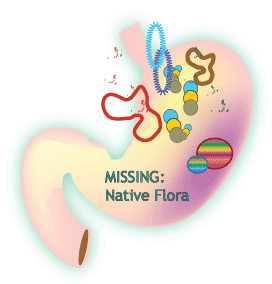Allergist Interview: Dr. Greg Sharon on Sherlock Holmes and What You Should Ask Your Allergist
 Our interview this month with board certified allergist and immunologist Dr. Greg Sharon, who practices in Bloomingdale, Illinois at the Allergy and Asthma Center, is particularly intriguing. His thoughts on the steps in an allergist’s diagnostic process, the ways in which societal changes have impacted allergic disease, and what questions patients should ask their allergists are just a few of the fascinating topics he touches on in our interview.
Our interview this month with board certified allergist and immunologist Dr. Greg Sharon, who practices in Bloomingdale, Illinois at the Allergy and Asthma Center, is particularly intriguing. His thoughts on the steps in an allergist’s diagnostic process, the ways in which societal changes have impacted allergic disease, and what questions patients should ask their allergists are just a few of the fascinating topics he touches on in our interview.
Please tell me a little bit about yourself and your history as an allergist.
“I completed my training 30 years ago. I trained in internal medicine, pediatrics, and allergy and immunology. In addition, I trained in both standard MD fashion and in homeopathic medicine.
“I was trained in a diagnostic method that resembles that of Sir Arthur Conan Doyle’s Sherlock Holmes. When it comes to allergies, what’s making someone sick should be looked at as a big mystery. This makes sense because allergists look at the interface between the environment and the patient; the environment induces toxicological or allergic responses.
“Diagnosis should be based firstly on true observation. I consider a patient’s occupation and history, for example, then process the information to form an opinion, and finally confirm with testing. Medically, this plays out as a medical history and physical exam, formulating an assessment, and deciding what and how to test.”
How big is your practice? Is there a particular type of allergy or treatment your practice specializes in?
“I have worked in private practice for about eight years, and currently run a practice with one other allergist. Our practice is a very, very busy practice. Individually, we see almost 500 patients a month.
“When such powerful drugs came out in the 1970s, allergy as a specialty seemed to be dying out. There are the same number of allergists graduating now as there were thirty years ago. At the same time, the number of people with allergies has exploded. Twelve percent of children have asthma, and one in four children is anaphylactic to a certain food or foods. This unforeseen climb in the number of those needing treatment, coupled with the lack of increase in the number of allergists is part of the reason our practice is so busy.
“We see all kinds of allergic conditions and issues surrounding hypersensitivity to environmental stimulants. We treat a lot of patients who have diagnoses that don’t pigeon hole into one place, such as chronic fatigue syndrome, fibromyalgia, autism, irritable bowel syndrome, migraines, esophageal problems, and rheumatic conditions like lupus and rheumatoid arthritis.
“Many of our patients come to see us seeking treatment options other than taking Claritin and nasal steroids forever. I saw a lady yesterday who specifically did not want to take medicine. We discussed allergy shots, environmental control, and avoiding certain foods to prevent hives and eczema. There are a lot of alternative medicine recommendations I can make that aren’t harmful. For instance, nobody dies from walnut deficiency; there’s no harm in trying to find relief from allergy symptoms by avoiding triggers.”
What do you love about your job?
“I think I’d have to say that the coolest thing about my job is that we get to see all ages. I could have an 88-year-old lady in one room, a 40-year-old guy in another, and a 3-year-old kid in another. We get a broad spectrum of exposure to all kinds of people and that’s pretty fun.
“Also, in allergy we can often actually help people rather than just decrease symptoms – and we can help them substantially. For instance, we can see someone who is anaphylactic to eggs who ends up feeling wonderful just by avoiding eggs altogether.
“We can also do a lot of educating. My mother is a teacher, and all the children in our family are doctors who are very much into educating their patients. Much of medicine is procedural, but treating allergies involves lifestyle changes which you can have more info here. It’s the perfect arena for patient education because knowledge gives patients the impetus to implement those lifestyle changes.”
If you could suggest one thing for your patients, what would it be?
“There are two things I recommend to all my patients: increase vitamin D consumption because vitamin D is the modulator of immune power and take probiotics.
“Taking vitamin D increases immunity and reduces autoimmunity. Probiotics are important because of our damaged bioflora. Wired magazine recently had a good article about this topic. We are seeing a lot of problems that we haven’t seen before, such as MRSA and killer strep. In addition, a few decades ago, we didn’t have the problem of salmonella in eggs or listeria in melons. We’ve done some bad things because we’ve moved into the farm-as-a-factory production system and because of our massive use of antibiotics.
“In the 1960s, I was put on penicillin for strep throat in seventh grade. My teacher asked for a show of hands of those who had taken antibiotics (this was pre-HIPPA laws). Only four out of twenty-four students raised their hands. I think it would be impossible to find a seventh grade classroom now in which there’s even one student who hasn’t taken antibiotics.

“This over-use of antibiotics has destroyed our gut flora, and has consequently led to problems with autoimmunity, obesity, diabetes, and more. For instance, consider the bacteria Heliobacter pylori, which was incinerated in the 1970s with antibiotics. “Back then, everyone had this bacteria in their bodies and now less than 5 percent of people have it. Yes, we have fewer problems with ulcers and less likelihood of gastric cancer, but it’s the old ‘wipe out the lions, then see an overgrowth of hyenas’ problem.
“With the near eradication of Heliobacter pylori, we have created new problems: Obesity is one issue. The presence of Heliobacter pylori affects hormones to suppress hunger and to cause us to feel more satiated with each meal. In addition, because the absence of Heliobacter pylori has changed the acid in the stomach, we are seeing an increase in esophageal disease and acid reflux in children.”
What questions should patients be sure to ask their allergist?
“Patients should ask their doctors, ‘What should I have on hand for emergency medicine for my condition?’ Many people who are at risk of a very dangerous food reaction don’t carry their emergency medicine with them. I also believe patients should have oral steroids available for when they experience adverse reactions to allergens that they don’t necessarily always encounter. It’s better to have these on hand rather than having to call in. When you have these at home, they are available for immediate relief in case there is a problem.”
What is your favorite allergy relief product?
“We often recommend Zyrtec because it is potent and it lasts for 24 hours. Yes, it causes drowsiness, so we suggest it be taken at night. We also recommend salt water washes or saline nasal products. If you’re out raking the leaves and you come in with a nose full of congestion, cleansing with a saline can provide immediate relief.”
Where do you see allergy treatment going in the near future? In the distant future?
“In the near future, I don’t think anything will change substantially. SLIT is the newest thing on the horizon, and it will help some people who can’t do allergy shots.
“In the distant future, there will be a group of patients who will benefit from T-cell modification therapy, in which regulatory cells are made tolerant to the food that the patient is allergic to and then injected back into the patient. This is made possible through knowing which part of the protein is allergenic, and it can be done in a test tube, posing much less danger to the patient than through actual exposure to the allergenic item.
“This therapy would be used for those with life-threatening allergies, and maybe for those with multiple drug allergies, which are a huge frustration, especially for older people who are allergic because they’ve taken so many drugs.”
Is there anything else you’d like to add or discuss?
“We believe strongly that the more stress a person is under, the more susceptible they are to allergies. There are four reasons a person’s allergies get worse: allergy overload, infectious diseases like mononucleosis, hormone changes, or increased stress. These are the four things that happen in people’s lives that make allergies worse.”
